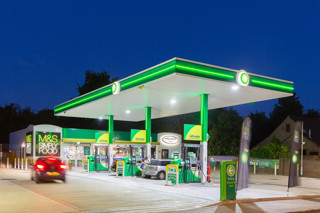Paul Holland, managing director for UK Fuel at Fleetcor
Heightened by the economic impact of Covid and Brexit, the number of HGV drivers on UK roads has dropped by 100,000 and could lead to a shortage of as many as 257,000 drivers by 2022.
The problem is aggravated as it can also cost up to £5,000 to train as a new truck driver, and some smaller fleet operators might not be able to afford to insure younger drivers, hence why only 2% of qualified drivers are under the age of 25.
One argument is to help those companies that operate HGV fleets to become more efficient by cutting regular costs like fuel, for example, to help to raise wages enough to entice more drivers into the industry.
The effects Brexit and Covid
The most immediate impacts of Brexit have been felt by the logistics industry, due to the increased difficulty in importing and exporting goods. But with this issue also comes the increasing difficulty of replacing EU nationals, if these workers move back to their native countries - EU nationals account for 13% of all LGV drivers in the UK.
Moreover, the ongoing Covid-19 pandemic has meant that training new drivers has become difficult since many testing centres have ceased operations, completely cutting off the already much diminished flow of new drivers who might be looking to pursue a career in the industry.
From a Covid standpoint, today consumption in Britain is ramping up as lockdowns come to an end. Supermarket chains are already warning that we could be looking at a ‘summer of food shortages’ as a lack of drivers means that 48 tonnes of fresh food is wasted every week. We now have a perfect storm of less drivers than ever and increased demand for their services.
How can fleets reduce costs?
With fuel being a key expense for most logistics companies, one solution to minimise costs would be for them to switch to a fuel card network. By choosing one with a large convenient network of refuelling sites across the UK, this will enable drivers to refuel where required.
Combined with the experience to be able to keep offering a good service, even in difficult economic conditions, businesses can rest assured that they’ll drive fuel efficiencies, while also reducing refuelling costs.
Elsewhere, hybrid fuel vehicles may also help reduce fuel costs. With the recent Government announcement banning the sales of new petrol and diesel HGVs by 2040, this will be top of fleet operators’ minds. However, the haulage industry is likely to be slow on this front as technology and infrastructure catches up.
The importance of understanding the market
It is vital that logistics companies understand the market, taking into account the expertise of partners that possess the expertise on market developments. Such partners can also help them get the best rates on fuel, as well as advising on ways to drive efficiencies up and costs down.
With costs reduced, this will allow wages to increase and along with government action to reduce the cost of training, this could attract enough drivers onto the roads and keep shelves stocked.





















Login to comment
Comments
No comments have been made yet.